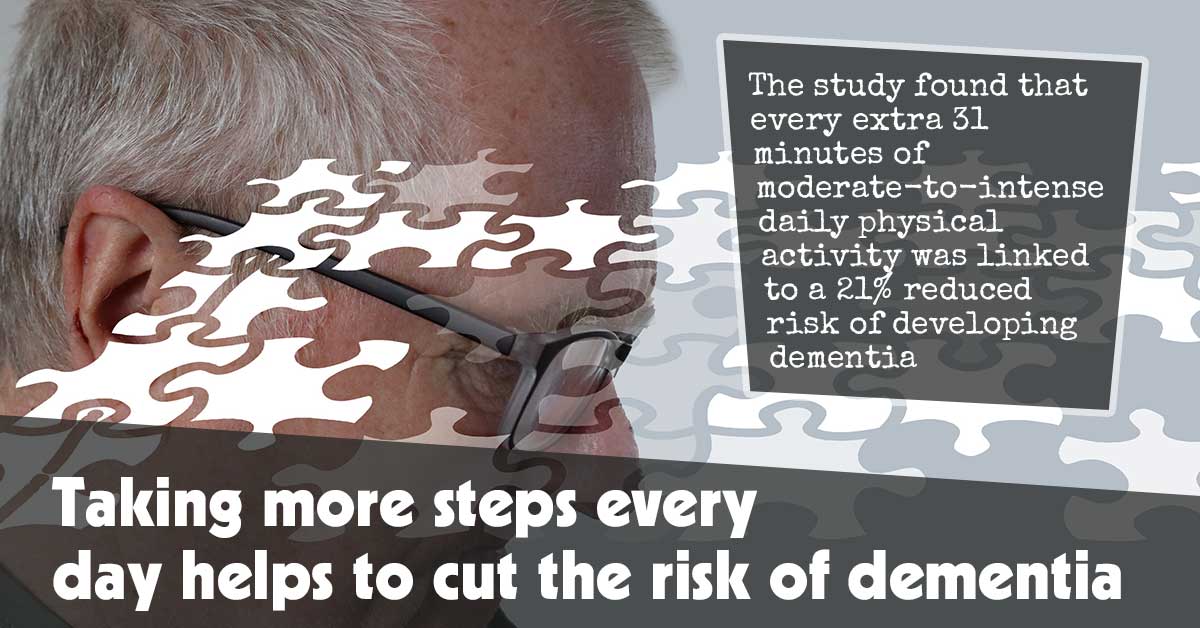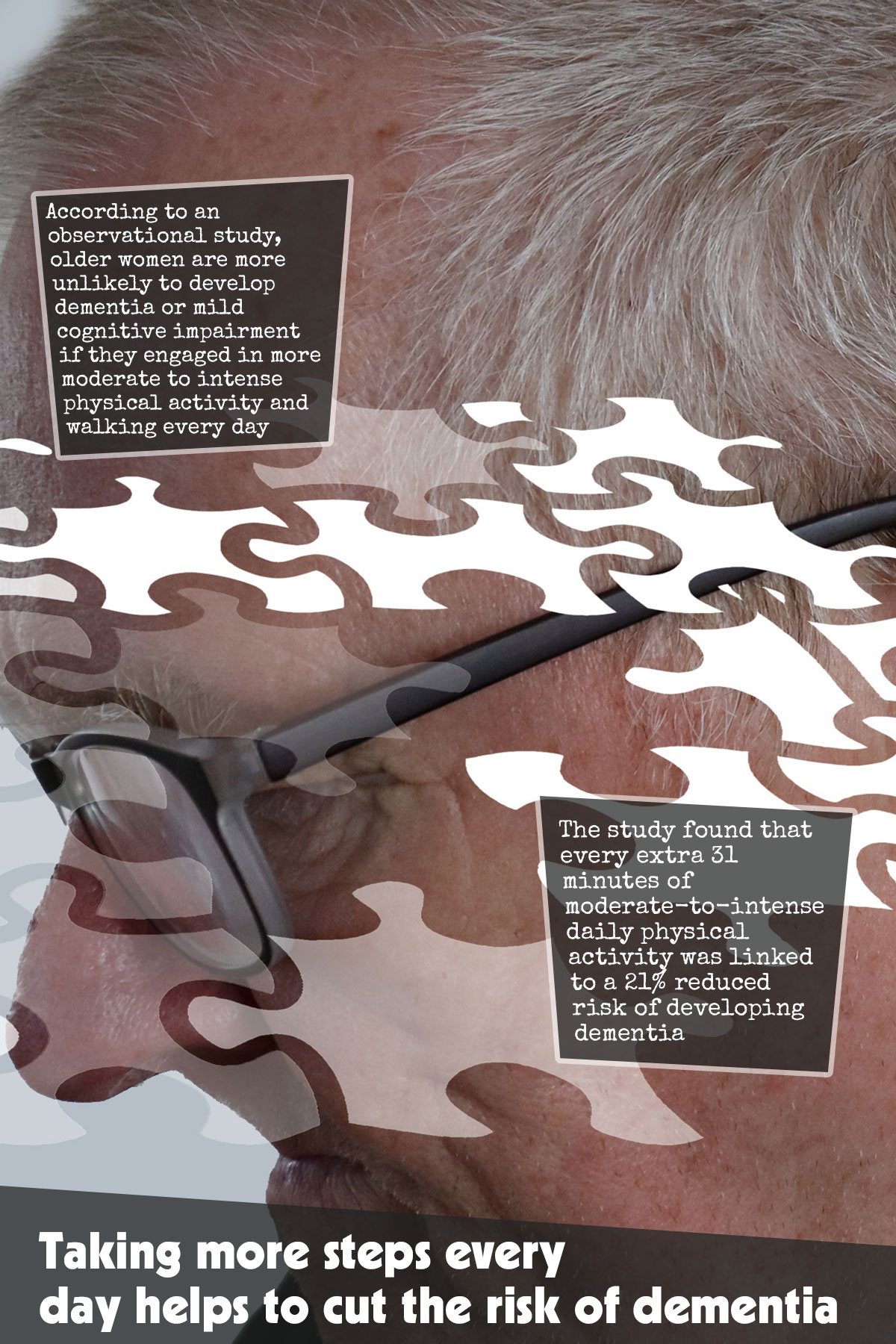According to an observational study, older women are more unlikely to develop dementia or mild cognitive impairment if they engaged in more moderate-to-intense physical activity and walking every day.1✅ JOURNAL REFERENCE DOI: 10.1002/alz.12908
The study found that every extra 31 minutes of moderate-to-intense daily physical activity was linked to a 21% reduced risk of developing dementia or mild cognitive impairment in women older than 65. There was also a 33% reduced risk with each extra 1,865 steps every day.
The early treatment for preventing or delaying dementia and cognitive decline in older individuals is vital considering that the beginning of dementia starts 20 years or more before symptoms show.
Although there are a few kinds, dementias are a debilitating neurological disorder that can result in loss of memory, the ability to think, reason, or solve problems. Mild cognitive impairment is an early phase of thinking problems or memory loss that’s not as severe as dementia. More women are at higher risk and live with dementia compared to men.
Physical activity has been recognized as one of the 3 most encouraging methods for reducing the risk of Alzheimer’s and dementia. Prevention is necessary because it’s very difficult to reverse or slow dementia once diagnosed.
But, because not many large studies have looked at device measures of sitting and movement associated with mild cognitive impairment and dementia, a lot of the published research on the associations between sedentary behavior and physical activity with dementia and cognitive decline is determined by self-reported measures.
For this study, data were sampled from 1,277 women included in 2 Women’s Health Initiative studies. Research-grade accelerometers were worn by the women as they went about their daily activities for up to 7 days to generate detailed measures of sitting and physical activity.
The activity trackers revealed the women averaged 10.5 hours of sitting, 276 minutes of light physical activities, 3,216 steps, and 45.5 minutes of moderate-to-intense physical activity each day. Walking, gardening or housework would be examples of light physical activity. Brisk walking would be an example of moderate-to-vigorous physical activity.
The study results also revealed that more time sitting and prolonged sitting wasn’t linked to a higher risk of dementia or mild cognitive impairment.
Older individuals should be encouraged to take more steps daily and increase movement of at least moderate intensity for a reduced risk of dementia and mild cognitive impairment.
The results for daily steps are especially significant because steps can be measured by a wide range of wearable devices that could easily be implemented.




